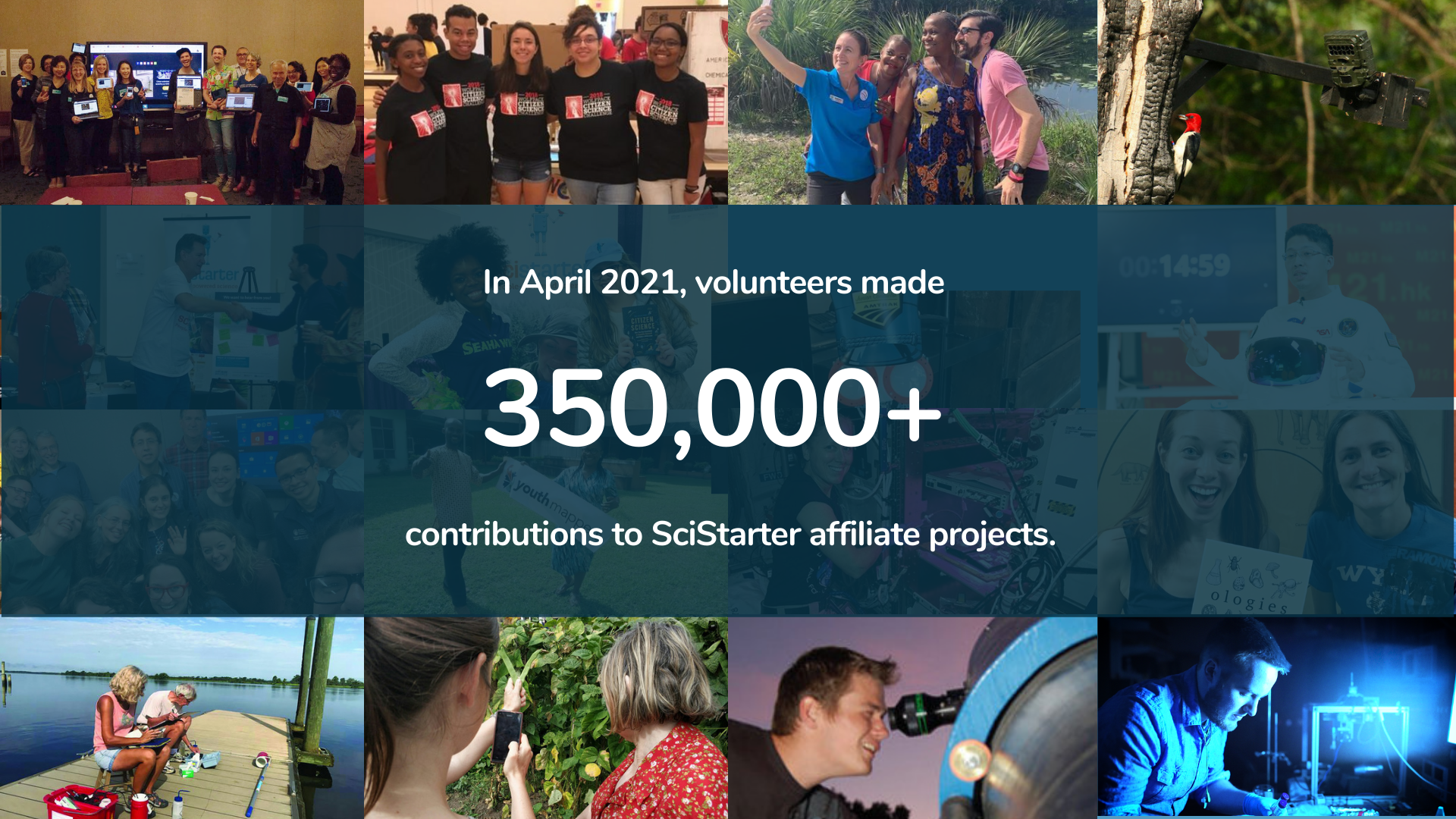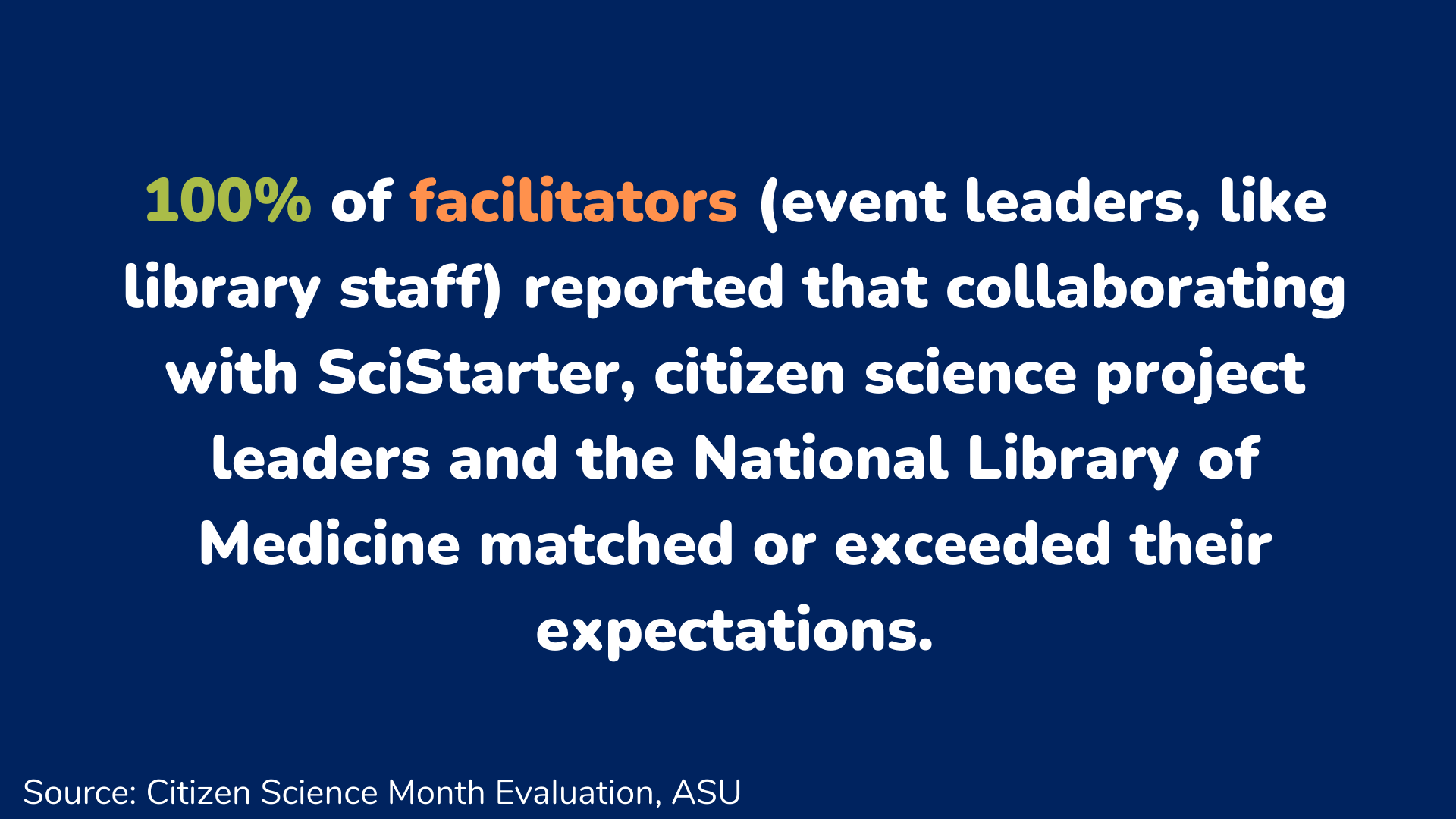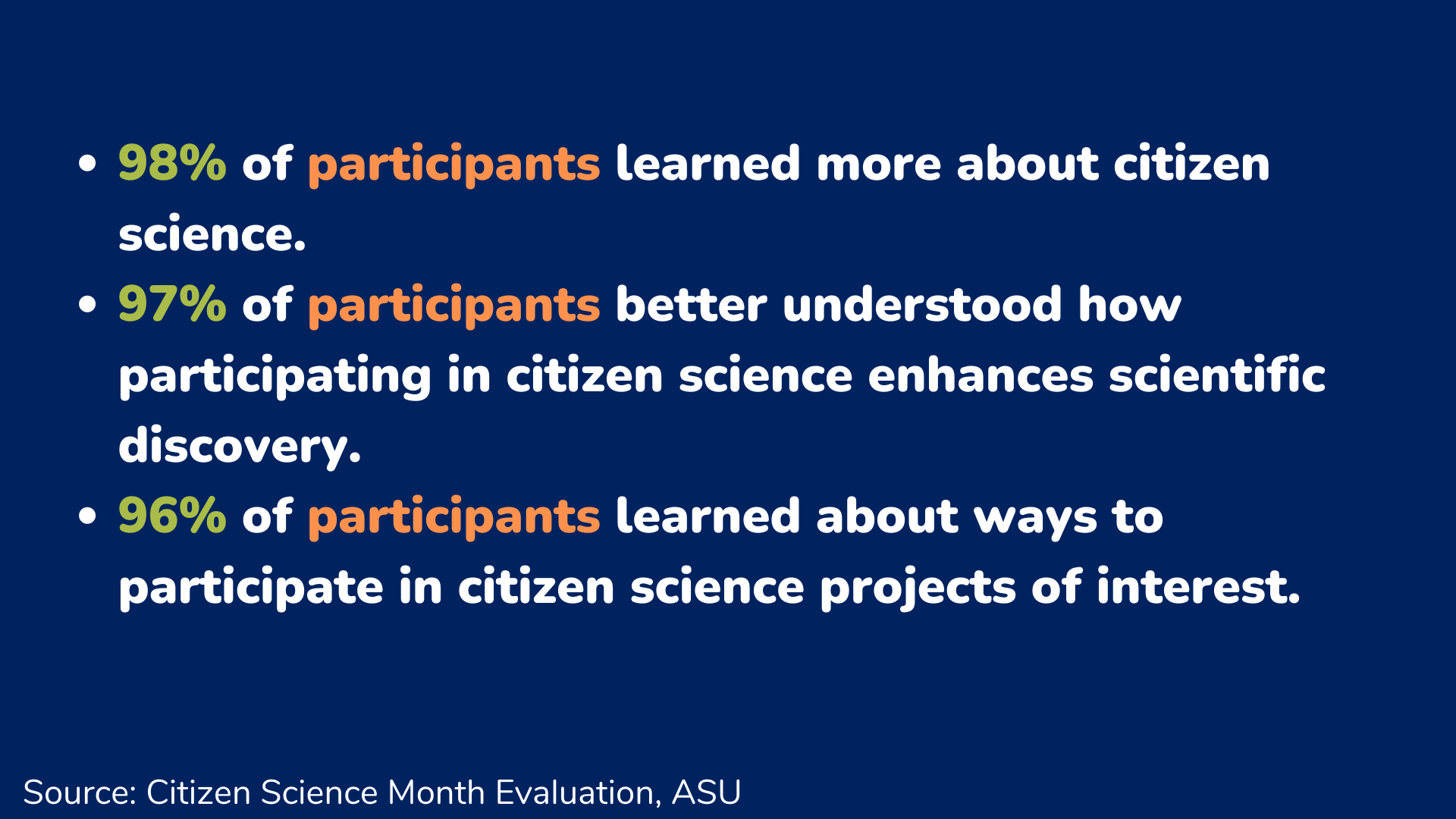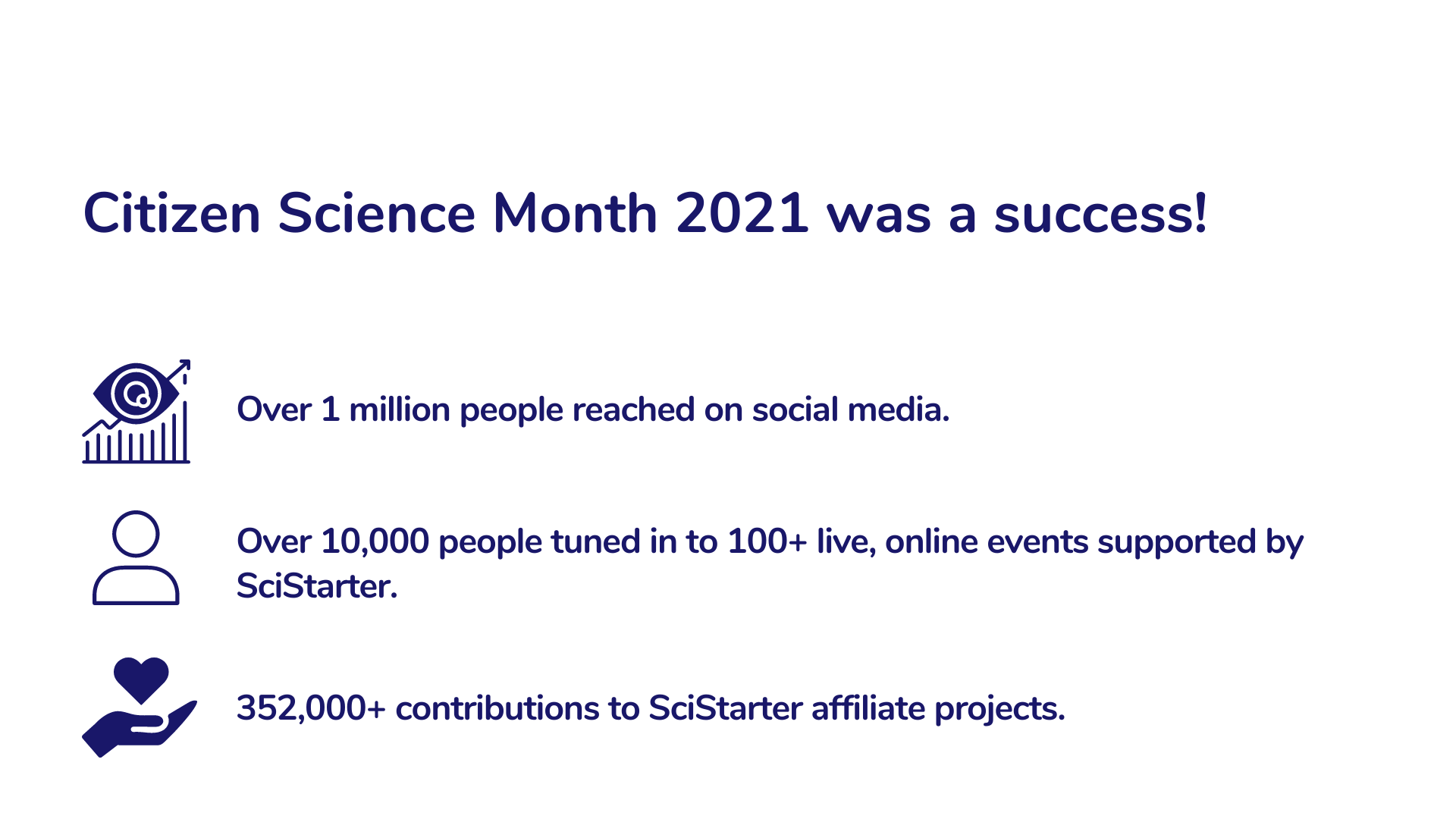In April 2021, SciStarter, the Network of the National Library of Medicine, the All of Us Research Program, Arizona State University and other partners commemorated the second annual Citizen Science Month. Previously, partners had celebrated Citizen Science Day starting in 2016, but the global community expanded the celebration to a month in 2020. This year’s month-long festival included over 250 events, and resulted in more than 350,000 brand-new contributions by volunteers worldwide to a diverse array of SciStarter affiliate projects.

Citizen Science Month was also an opportunity to welcome new members to the citizen science community with highlight events like Kids Day in partnership with TIME for Kids, PBS SciGirls, iNaturalist and National Geographic, as well as Citizen Science Around the World, which featured a simultaneous discussion with project representatives from all seven continents. Find recordings of Citizen Science Month events on SciStarter’s Facebook and YouTube channels, and watch a compilation video, below.
In a follow-up survey administered by SciStarter, Arizona State University evaluators asked project leaders, event facilitators and participants for their feedback on Citizen Science Month. We were gratified by the many responses, which revealed the importance of outreach and the global appeal of engaging in science. Project leaders told us how Citizen Science Month events helped increase public awareness of their projects, while participants shared a newfound confidence in interacting with science and scientists.
This year also saw libraries — valuable partners as hubs of citizen science in their communities — take an outsized role in hosting and facilitating events. At least 30 events were hosted by local libraries, where facilitators introduced attendees to citizen science and showed them how to use custom resources like citizen science library kits.

Citizen Science Month 2021
In April, more than 10,000 people tuned in to live-streamed events hosted as part of Citizen Science Month. That attendance translated into real impact, with 136,000 new visitors to SciStarter project pages during April. That’s a huge increase above our baseline for the rest of the year.
For many project leaders, April was a chance to boost public awareness of their project and reach new audiences. 100 percent of project leaders surveyed said participating in Citizen Science Month increased public awareness about their project.
“We love using Citizen Science Month to organize and engage long-term participants in our project,” said one project leader in their feedback.
“Prepping for the event made me think about the project in a different way to market it to a new audience, one that enjoys and is active in science projects,” another added.
Event facilitators also reported positive outcomes from their involvement in Citizen Science Month. 81 percent of facilitators rated the Citizen Science Month event they facilitated or co-facilitated as “good” or “excellent.” And facilitators’ who said they were at least moderately confident in hosting events jumped from 57 percent before Citizen Science Month to 95 percent afterwards. Further, 100 percent of event facilitators surveyed said they’d be likely to host another citizen science event in the future.
“The experts we booked were wonderful to work with and added immensely to the program,” according to one facilitator.
Resources like SciStarter’s Library and Community Guide to Citizen Science also made it “really easy to host the event,” facilitators noted, and working with partners added both “legitimacy” and “credibility” to the events. Every facilitator surveyed said they felt they had ample resources to promote and host events.
Meanwhile, additional support resources like the Foundations of Citizen Science tutorial, booklists, training webinars, printable and online graphics, logos and stock photos were downloaded over 15,000 times during April as event facilitators planned and promoted events in their communities. In hopes of inspiring the global community, over thirty individuals and organizations shared their citizen science stories through SciStarter’s Citizen Science Month Twitter and Instagram social media takeovers.
Participants Give High Marks
Among participants, nearly everyone surveyed rated the events they attended as “Good” or “Excellent.”
“The rapport of the presenters made this feel like a chat amongst friends over coffee which was fabulous,” said one.
A vast majority of participants also said participating in Citizen Science Month events and projects helped them learn more about citizen science. Their involvement helped them feel more confident with science, participants said, and made them feel more motivated to engage in science in the future.

“It’s important to get involved and show my children that we can all participate in science in a meaningful way at any age,” said another.
Additionally, almost two-thirds of survey respondents said Citizen Science Month helped change the way they think about libraries and the services libraries provide. SciStarter is working with libraries to promote these spaces as hubs of citizen science for their communities, including by hosting events there and providing library kits filled with everything necessary to do popular citizen science projects.
Schools are another important venue for citizen science. Many educators brought citizen science to their learners during Citizen Science Month, using the accessible tools SciStarter provides.
“The collaboration with real science gets students excited about science and about being part of something bigger than themselves and their school,” one teacher said.

It’s Never Too Early to Plan for Next April
Anyone can plan a citizen science event and engage people of all ages in real scientific research — and on SciStarter, you can add or find a citizen science project, event or tool any time of the year, not just in April! Resources from this past April are still available, and to stay in the loop about upcoming support for 2022, sign up for SciStarter’s Citizen Science Month mailing list. How will you bring citizen science to your community?

